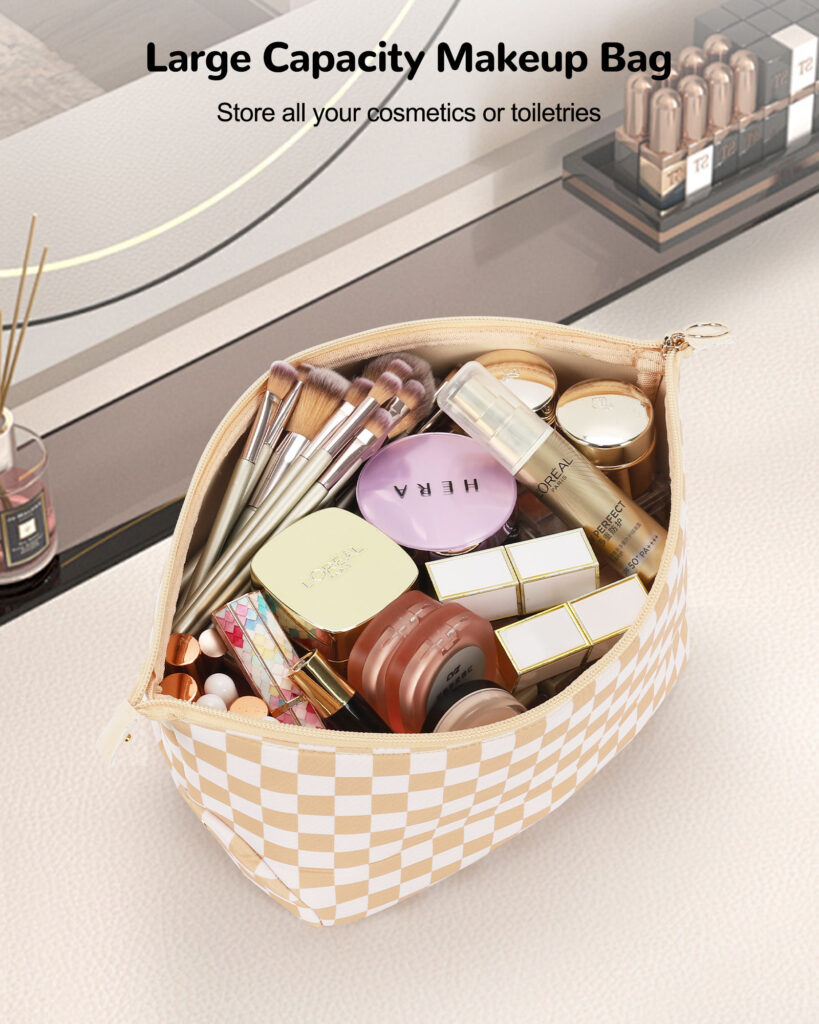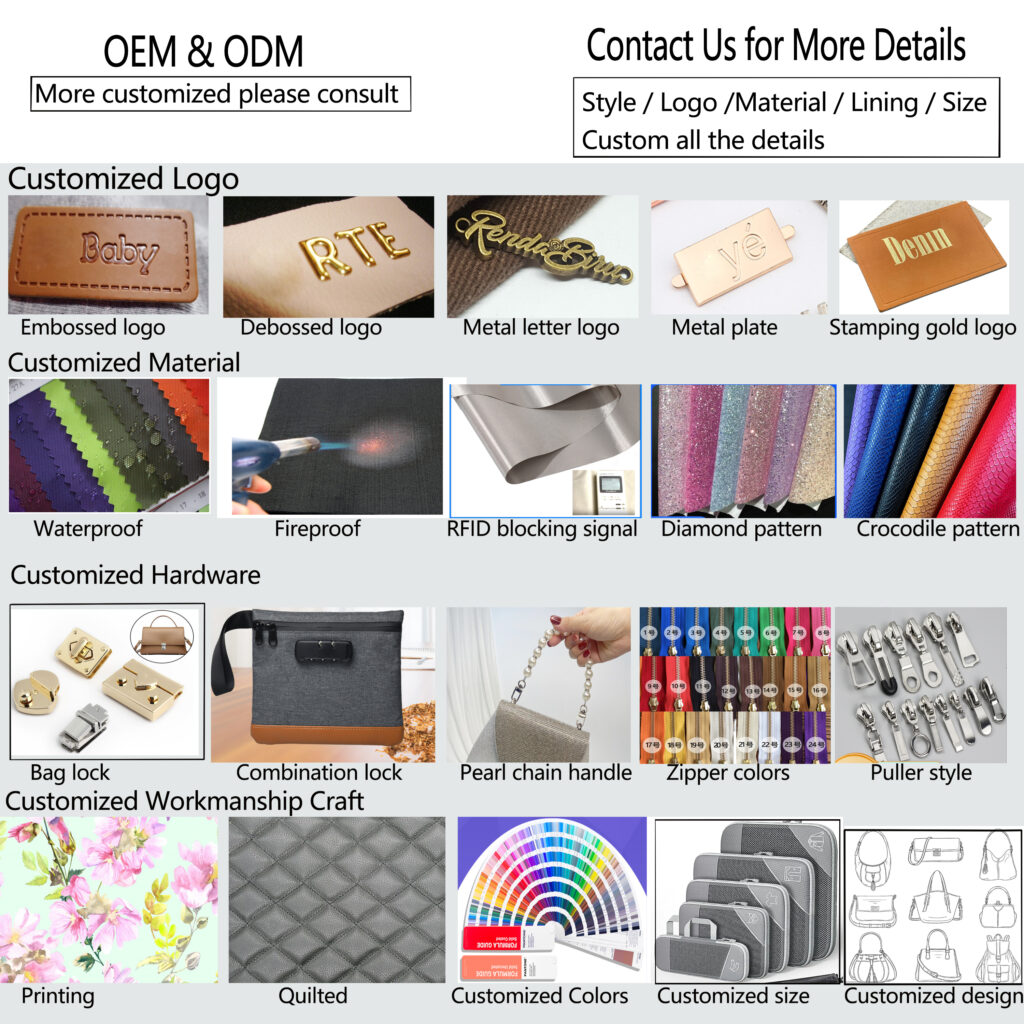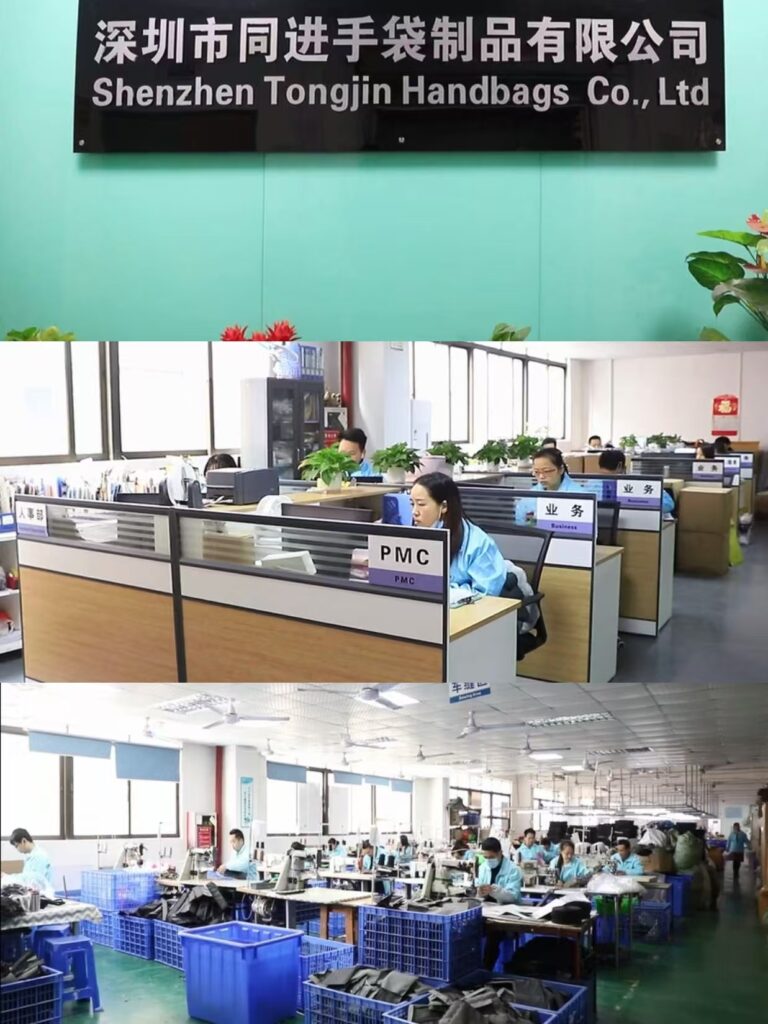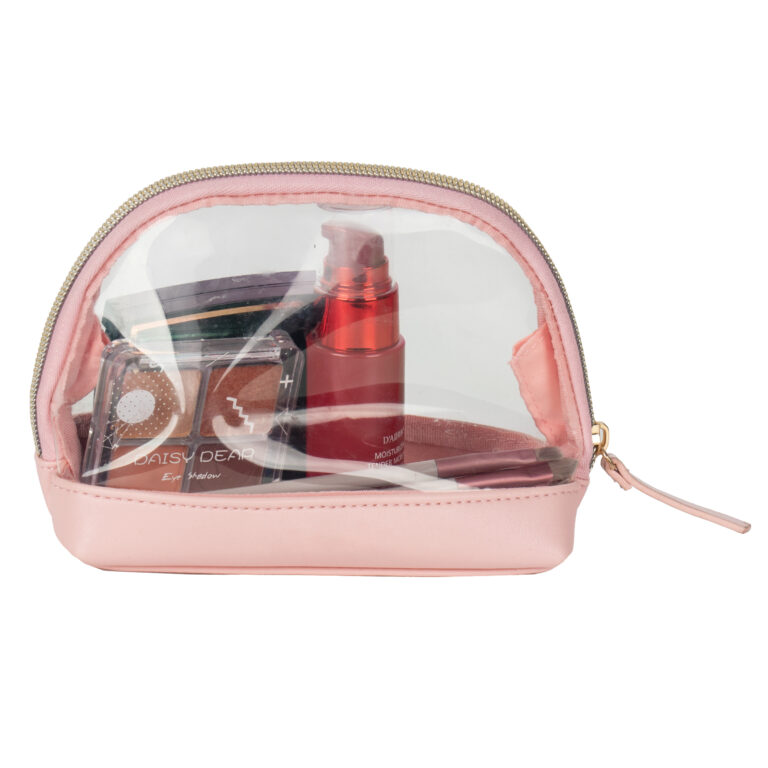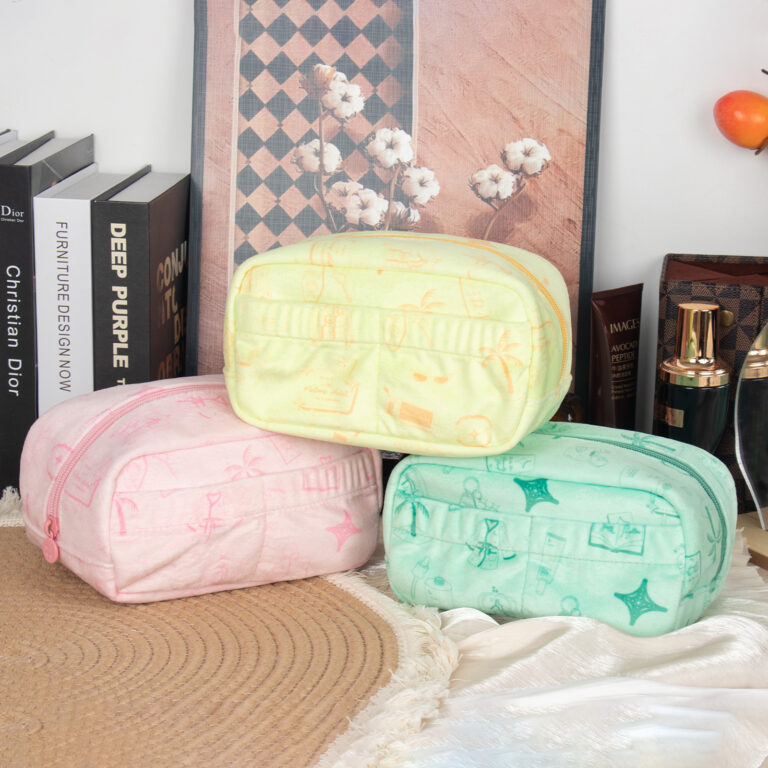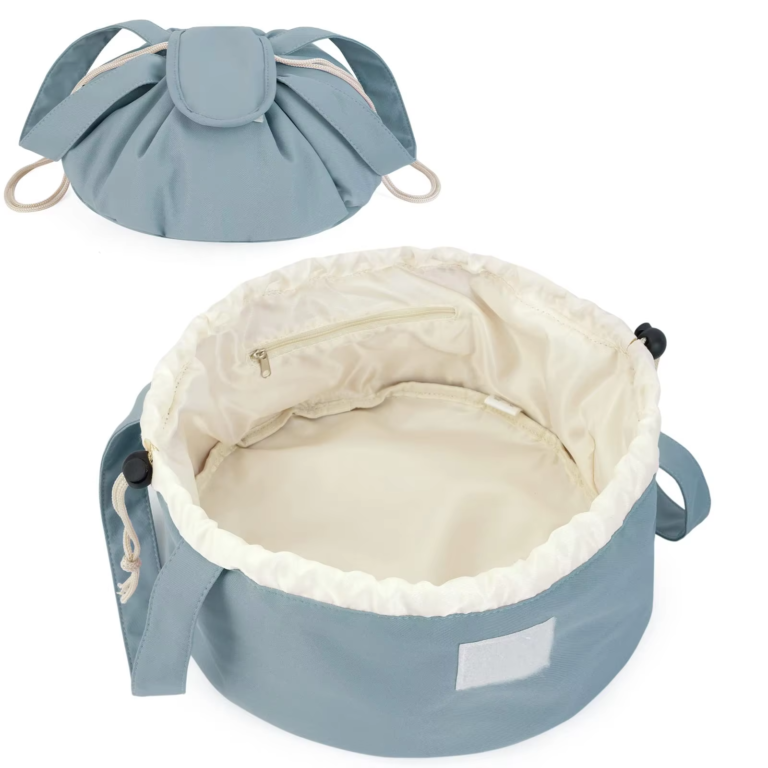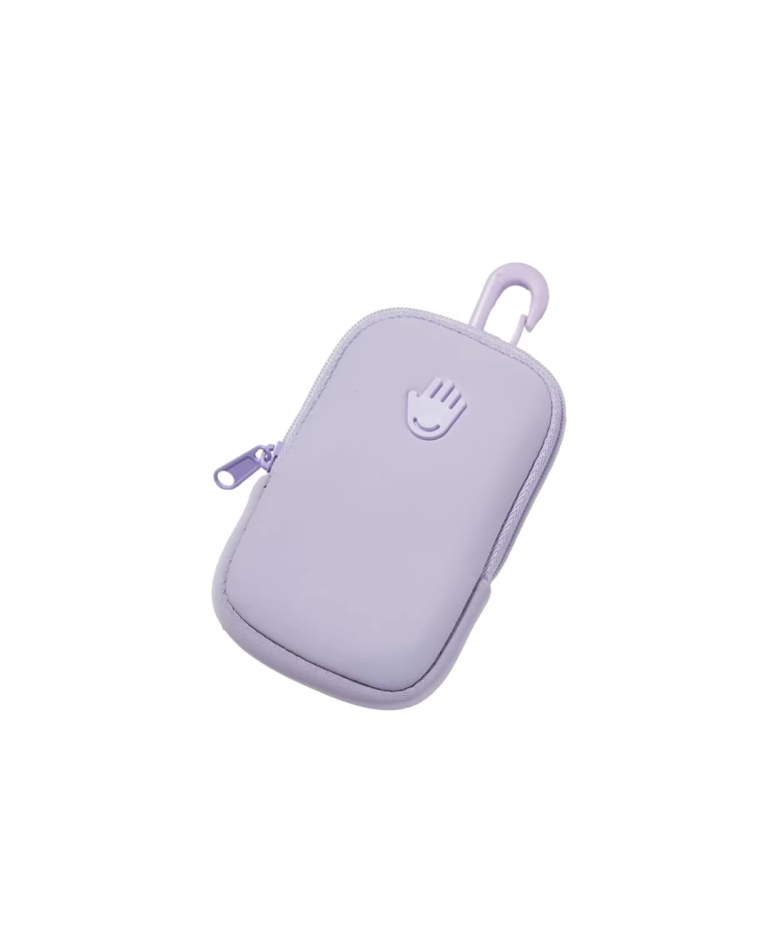Personalized Makeup Bag: Merging Style, Fungsi, and Eco-Friendly Production
In an era where personal expression and environmental consciousness coexist as dominant cultural values, the demand for personalized products that align with sustainable living has surged. Among these, the personalized makeup bag has emerged as a beloved accessory, blending individual style with practical utility. Beyond its aesthetic and functional appeal, however, this seemingly simple item has become a symbol of a larger movement toward eco-friendly production—a shift that prioritizes both consumer customization and environmental responsibility. This article explores the rise of personalized makeup bags, the importance of integrating eco-friendly practices into their production, and how this combination meets the evolving needs of modern consumers.
The Rise of Personalized Makeup Bags: A Cultural Phenomenon
Personalization has become a defining trend across industries, driven by consumers’ desire to own items that reflect their unique identities. Makeup bags, once purely functional accessories, have evolved into statement pieces. Whether adorned with monograms, custom prints, or unique color combinations, personalized makeup bags allow users to carry their beauty essentials in a container that feels uniquely theirs.
The Psychology of Personalization
Consumers are increasingly drawn to products that offer a sense of ownership and self-expression. A 2023 survey by Accenture found that 66% of consumers expect companies to understand their individual needs, Dan 56% are more likely to buy from brands that offer personalized experiences. In the beauty sector, this translates to makeup bags that serve as extensions of one’s personal style. A traveler might opt for a rugged, personalized canvas bag with their name embroidered, while a makeup artist could prefer a sleek, customized leather case with compartmentalized trays for professional use. These choices go beyond functionality; they become part of the user’s personal brand.
Market Growth and Industry Response
The global personalized accessories market, including makeup bags, has seen steady growth, driven by e-commerce advancements and social media influence. Platforms like Etsy, Redbubble, and even major fashion brands now offer customizable options, allowing customers to choose materials, sizes, and design elements. This trend reflects a broader shift from mass production to mass customization, where consumers no longer settle for generic products but seek items that resonate with their individuality.
Eco-Friendly Production: A Necessity, Not a Luxury
As the fashion industry faces increasing scrutiny for its environmental impact—accounting for 10% of global carbon emissions and 20% of wastewater—the call for eco-friendly production in accessory manufacturing has grown louder. Personalized makeup bag manufacturers are now challenged to balance customization with sustainability, ensuring that the desire for unique products does not come at the expense of the planet.
The Environmental Impact of Traditional Production
Conventional makeup bag production often relies on non-sustainable materials like virgin plastics (e.g., PVC, poliester), synthetic dyes, and energy-intensive manufacturing processes. These materials contribute to pollution throughout their lifecycle: from the extraction of raw materials to their disposal, which often ends in landfills or oceans. Selain itu, the waste generated by personalized production—such as leftover fabric scraps or excess dye—can exacerbate environmental harm if not managed properly.
The Shift to Sustainable Practices
Thankfully, forward-thinking brands are embracing eco-friendly production as a core value. This involves reimagining every stage of the supply chain, from material sourcing to packaging:
- Sustainable Material Sourcing: Using organic cotton, recycled polyester (made from plastic bottles), hemp, cork, or even mushroom-based leather alternatives. These materials reduce reliance on fossil fuels and minimize water/chemical use.
- Low-Impact Manufacturing: Adopting waterless dyeing technologies, solar-powered factories, and zero-waste patterns that maximize fabric usage. Some brands even offer “upcycled” makeup bags, created from leftover materials from other production lines.
- Ethical Labor Practices: Ensuring fair wages and safe working conditions for artisans, which often go hand-in-hand with sustainable production models.
- Recyclable Packaging: Using biodegradable or recycled packaging materials, reducing plastic use, and encouraging customers to recycle or reuse packaging.
Crafting the Perfect Personalized Makeup Bag: Balancing Customization and Sustainability
The key to a successful personalized makeup bag lies in harmonizing the customer’s design preferences with eco-friendly principles. Let’s break down how this balance can be achieved:
Material Choices: Sustainable Yet Stylish
- Organic Cotton: Soft, durable, and biodegradable, organic cotton is grown without synthetic pesticides, reducing water pollution and soil degradation. It can be printed with water-based inks for personalized designs.
- Recycled Polyester (rPET): Made from post-consumer plastic bottles, rPET has the same quality as traditional polyester but uses 59% less energy and reduces plastic waste. It’s ideal for waterproof or durable makeup bags.
- Hemp and Linen: These fast-growing plants require minimal water and pesticides, making them highly sustainable. Their rugged texture adds a unique, natural aesthetic to personalized bags.
- Vegan Leather: Crafted from materials like pineapple fiber (Piñatex) or mushroom mycelium, vegan leather offers a cruelty-free and eco-friendly alternative to animal hides, with customizable embossing or printing options.
Design Customization with Environmental Mindfulness
Personalization doesn’t have to mean excess. Brands can offer eco-conscious customization options:
- Embroidery Over Printing: Embroidery uses less water and chemicals than traditional screen printing, and it creates a durable, tactile design. Monograms or minimalistic patterns are popular choices.
- Modular Designs: Bags with 可拆卸 compartments or adjustable dividers allow users to customize functionality without creating waste. As needs change, the bag can be reconfigured rather than discarded.
- Limited Edition or Made-to-Order Models: Producing items on demand reduces overstock and waste, a practice embraced by brands like Patagonia and Everlane in their personalized lines.
Case Study: A Brand Leading the Way
Consider “EcoChic Customs,” a hypothetical brand that specializes in personalized makeup bags with a focus on eco-friendly production. They source organic cotton from Fair Trade farms, use digital printing with non-toxic inks, and assemble products in solar-powered facilities. Customers can design their bags online, choosing from pre-approved sustainable materials and customization options. Each bag comes with a QR code linking to the story of its production—from the farm where the cotton was grown to the artisan who stitched it—creating transparency and building consumer trust. This model not only appeals to eco-conscious buyers but also educates them on the value of sustainable choices.
The Consumer’s Role: Driving Demand for Sustainable Personalization
While brands play a crucial role in adopting eco-friendly production, consumers also have the power to influence change through their choices. Here’s how individuals can support sustainable personalized makeup bags:
Prioritizing Brands with Clear Sustainability Goals
Look for certifications like GOTS (Global Organic Textile Standard), Fair Trade, or B Corp status, which signal a brand’s commitment to ethical and environmental practices. Brands that openly share their supply chain details or carbon footprint are more likely to be accountable.
Choosing Durability Over Disposability
A well-made personalized makeup bag, crafted from sustainable materials, can last for years, reducing the need for frequent replacements. Investing in quality over quantity aligns with the principles of circular fashion, where products are designed for longevity.
Engaging in Post-Consumer Responsibility
Many brands now offer recycling programs for old bags or use take-back schemes to repurpose materials. Consumers can also get creative: a worn-out makeup bag can be repurposed as a pencil case, travel pouch, or even upcycled into a new craft project, extending its lifecycle.
Challenges and Solutions in Merging Personalization and Sustainability
While the demand for personalized, eco-friendly makeup bags is growing, challenges remain:
- Cost: Sustainable materials and ethical production often come with higher price tags. Brands can address this by educating consumers on the long-term value of such products and offering tiered pricing options.
- Design Limitations: Some sustainable materials may have limitations in terms of color or texture compared to synthetic alternatives. However, innovative material science is constantly expanding options—for example, plant-based dyes now offer a wide range of vibrant colors without harmful chemicals.
- Complex Supply Chains: Ensuring every component of a personalized bag (from zippers to dyes) is sustainable requires meticulous sourcing. Brands can start by focusing on key materials and gradually expanding their eco-friendly offerings as supply chains evolve.
The Future of Personalized Makeup Bags: A Sustainable Vision
As consumer awareness continues to rise, the future of personalized makeup bags lies in seamless integration of style, function, and sustainability. We can expect:
- Advanced Customization Technologies: 3D printing of accessories using recycled materials, allowing for intricate, one-of-a-kind designs with minimal waste.
- Digital Twins for Design: Virtual try-on tools that let customers visualize their personalized bag before production, reducing the need for physical samples and prototypes.
- Carbon-Neutral Production: Brands aiming for net-zero emissions by offsetting carbon through reforestation projects or renewable energy investments.
- Community-Driven Design: Collaborative platforms where customers contribute to design concepts, fostering a sense of ownership and reducing waste by creating products that truly match consumer needs.
Conclusion: A Beautiful Accessory for a Beautiful Planet
The personalized makeup bag is more than just a fashion accessory; it’s a canvas for self-expression and a catalyst for change. By embracing eco-friendly production, brands and consumers alike can transform a simple item into a statement of responsibility—proving that style and sustainability can coexist harmoniously. As we move forward, the choice to invest in a personalized, environmentally conscious makeup bag becomes the ultimate blend of personal taste and global citizenship. It’s a reminder that even the smallest accessories can make a big difference when crafted with care for both people and the planet.
In a world where every purchase is a vote for the kind of future we want, the personalized makeup bag stands as a symbol of what’s possible when innovation meets intention. So whether you’re designing a bag with your initials, a favorite quote, or a unique pattern, remember: your choice can help stitch together a more sustainable tomorrow—one stylish, eco-friendly accessory at a time.
Tags:tas kosmetik,tactical backpack
Hubungi kami untuk penawaran grosir

